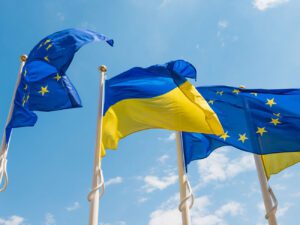
Ukrainian President Volodymyr Zelenskyy has held the first telephone conversation of the new year with European Commission President Ursula von der Leyen, the president’s press service has said.
“The interlocutors discussed the expected results of the next Ukraine-EU summit, which will take place in Kiev on February 3 this year, and agreed to intensify the preparatory work,” the statement said.

Some Ukrainian pork producers and processors plan to start exporting pork to EU next year as they study European regulations and prepare for unofficial audits on the compliance of their products with export requirements.
At the moment, four Ukrainian enterprises of the industry are interested in launching pork exports to Europe, according to the website of the Association of Ukrainian Pork Producers (ASU) on Thursday.
“We have been working with experts and the veterinary service to have “draft” questionnaires ready in advance for enterprises that want to check whether they meet the requirements of EU regulations. A number of processors interested in exporting pork have gone through these questionnaires to assess what they need to polish to prove their compliance with regulations,” the organization quotes its president Oksana Yurchenko as saying.
According to her data, the EU “has a certain understanding” that next year may be introduced certain indulgences for Ukrainian pork products, which before the full-scale Russian aggression was not even particularly discussed.
“Next year, in cooperation with international organizations, we will start informal audits to support such producers. Now there are four enterprises,” Oksana Yurchenko stressed in a statement.
According to ACU estimates, the European Union will be open to exports of Ukrainian pork for up to two years, and this is not a pessimistic scenario.
In turn, the industry is promoting the official approval of international certificates for the export of pork to Vietnam and Hong Kong, but so far it is not very relevant, because the sea routes are closed due to the aggression of Russia, and other logistics for producers financially unprofitable.
As reported, on May 11, 2022, the European Commission allowed the export of pork, beef and processed meat products produced in Ukraine to third countries via the EU.
As of February 1, 2022, the total number of pigs in Ukraine amounted to 5.56 million, a decrease of 3.4% compared to the same date in 2021. Data for the following months was not published by the State Statistics Committee due to the beginning of full-scale Russian military aggression in Ukraine.
Consumption of pork per capita in Ukraine this year will be 20 kg/year, up slightly from 19.9 kg/year in 2021. A total of 625 thousand tons of meat and meat products will be produced in the country during the year.
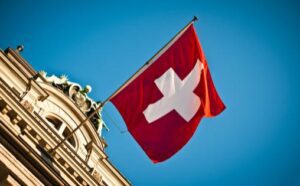
Switzerland followed the EU in imposing new sanctions against Russia, with 141 individuals and 49 legal entities added to the “black lists,” the Swiss government said in a statement.
“Switzerland, by amending the sanctions lists on December 21, thus joined the EU measures,” the press release said.
“Switzerland is amending the sanctions regime as part of the measures that the EU adopted in connection with the supply of Iranian drones to Russia and the continuing alarming situation in Ukraine,” the document specified.
The sanctions will take effect at 6 p.m. local time.
According to the statement, on December 16, the EU also imposed a ban on exports to Russia of a number of other categories of goods and services, and the Swiss government, in turn, will study these measures.
On December 16, the EU Council approved the ninth package of sanctions against Russia, which includes restrictions against the mining and energy sectors and a ban on exports of space industry goods and drones.
Among other things, the EU also added 168 more entities related to the defense industry of Russia to its “black lists. In addition, the ninth EU sanctions package against Russia included 144 individuals, including high-ranking Russian officials, MPs, military personnel and artists from Russia.
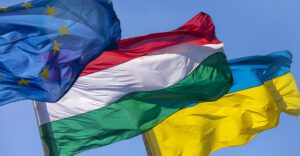
Hungarian Finance Minister Mihai Varga on behalf of the country spoke out against the adoption of legislative amendments by the European Council that would allow Ukraine to allocate EUR 18bn in macrofinancial aid plus in 2023.
Nevertheless, the EU will continue to seek a solution that would be supported by all member states.
“Hungary opposes the amendment of the financial legislation,” he said Tuesday in Brussels on the sidelines of the open part of the Economic and Financial Affairs Council.
In particular, Hungary opposed the amendment to the multiyear financial legislation, which must be passed unanimously.
At the same time, ministers voted by qualified majority macro-financial assistance plus (MFA+) and an amendment to the financial regulations.
Czech Finance Minister Zbigniew Stanjura, who chaired the meeting, commenting on the situation, said: “Unfortunately, we were not able to pass the package as a whole. Nevertheless, this will not cool down our ambitions to start allocating our aid to Ukraine from the beginning of January. I ask the Economic and Financial Committee to find an alternative solution. That means that we will have to find a solution that all countries will support. We will find a solution to support Ukraine.
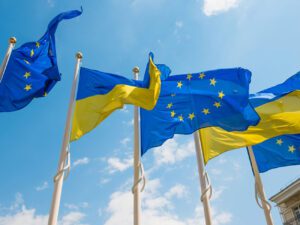
European Union finance ministers will discuss a proposal of the European Commission to provide EUR18bn to Ukraine in 2023 in a specially created “macrofinancial support plus” format. It is not yet known whether a decision will be made.
This was told to journalists on the eve of a meeting of the Council on Economic and Financial Affairs, which will be held on Tuesday in Brussels, a European diplomat on the right of anonymity.
He explained that three legislative proposals will be discussed: macrofinancial aid plus (MFA+) and an amendment to the financial regulations, which must be passed by a qualified majority, and an amendment to the multiyear financial scheme, which must be passed unanimously. “Ministers will discuss these proposals and then decide whether or not to bring them to a vote. Tomorrow (Dec. 6 – IF-U) will be decisive. No decisions have been made as of today. We have to see tomorrow morning and decide how we will move forward, we have to see if there is an opportunity for the ministers to decide whether to put these issues to a vote or not,” detailed the interlocutor to the journalists.
He also recalled that the loans, which will be granted to Ukraine in 2023 in the amount of EUR18bn, will have a 10-year grace period. It is proposed that member states will cover the major part of interest expenses, while guarantees for these loans will be provided from the EU budget.
Relevant proposals were officially presented by the European Commission on November 9, followed by a vote in the European Parliament on November 24.
At the same time this proposal was opposed by Hungary. Thus, on December 2, Prime Minister Viktor Orban said that he “doesn’t want the European Union to become a community of debtor-states instead of a community of cooperating states. Instead, he suggested that all EU members use funds from their own budgets to help Ukraine through bilateral agreements.
It is not ruled out that it is at Budapest’s suggestion that the vote may be postponed to a later date.
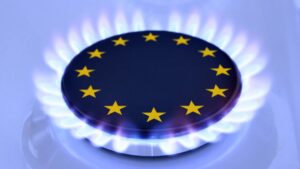
Natural gas supply to Ukraine from EU countries in November 2022 amounted to 228 mln. cubic meters, 27.7% less than in October (315.4 mln. cubic meters), operational data of GTS Operator of Ukraine show.
In particular, the supply of gas to the “customs warehouse” UGS in November made 191.1 million cubic meters against 261.9 million cubic meters in October.
In November, Romania with a modest volume of 0.3 million cubic meters was added to the gas supply to the Ukrainian GTS from Poland, Slovakia and Hungary. At the same time, in the morning of December 2, 8.7 million cubic meters of the total volume was received at the entrance from Romania out of a total of 18.1 million cubic meters. Romanian volumes bypassed the “customs warehouse”.
According to the analytical publication ICIS, Moldova imports gas from Romania through the Trans-Balkan pipeline. Volumes delivered through the Greece-Bulgaria interconnector (IGB) were physically sent north to Moldova via the Trans-Balkan line via Romania and Ukraine.
Once the volumes enter Moldova through the southern border crossing of Causeni, they can be subtracted from the volumes entering Moldova from Ukraine through the Grebeninki border crossing in the north, a regional source told ICIS.
“It took almost six years to unblock the network in the region and start physical gas supplies from alternative directions,” former UGTSU head Sergei Makogon said in a comment to ICIS.
As reported, in September 2022, from the territory of Poland, Slovakia and Hungary to Ukraine received 29.4 million cubic meters (TC – 17.4 million cubic meters), August – 142.1 million cubic meters (120.7 million cubic meters), July – 119 million cubic meters (82.6 million cubic meters). The Trans-Balkan Gas Pipeline is located in the northern part of the Russian Federation, in July – 119 million cubic meters (82.6 million cubic meters), June – 46.1 million cubic meters (6.6 million cubic meters), May – 24 million cubic meters (4.9 million cubic meters), April – 3.2 million cubic meters (3.2 million cubic meters), March – 282.3 million cubic meters (10 million cubic meters), February – 349.7 million cubic meters (11 million cubic meters), January – 47 million cubic meters (0.0 million cubic meters).
The Trans-Balkan pipeline is a trunk gas pipeline crossing the territory of Ukraine, Moldova, Romania, Bulgaria and Turkey.